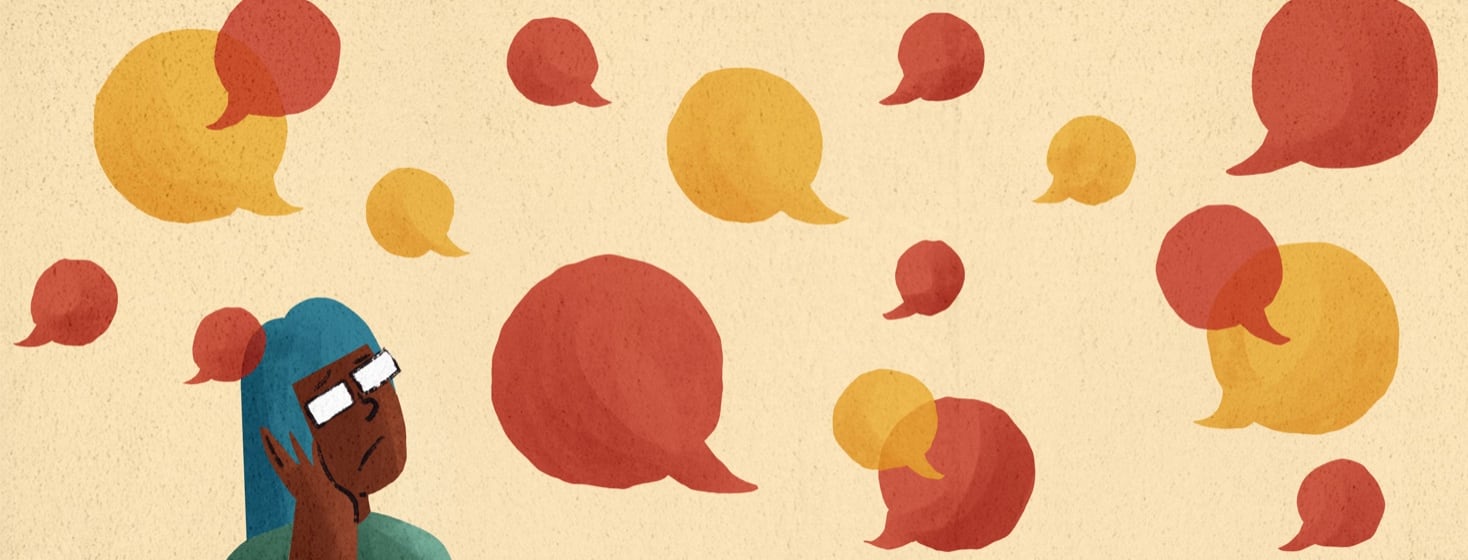Coping With Unwelcome Comments About UC
We all know the comments. Comments like, "Should you really eat that?" or "You're sick again?"
These phrases are all too familiar for people with ulcerative colitis, and they often come from loved ones like family or friends. It's as if our own disease's physical (and mental/emotional) toll is somehow presumed by others to be unknown to us.
Of course, people are usually trying to help when they offer these suggestions or prodding us to come out despite not feeling well. The intentions are good, but the effect is far from that.
Uncomfortable comments about my ulcerative colitis
Unwelcome comments like these add discomfort to the already uncomfortable experience of IBD. If chronic diarrhea, blood, pain, and fatigue aren't enough, there's the added guilt these phrases and suggestions bring on. Over time, this guilt becomes internalized to the point that we, ourselves, are often anticipating negative reactions from others.
If you're anything like me, fear that your friends or family are thinking negative things about you is one of the first things that emerge when you even contemplate canceling because of your illness. I worry about being the "sick friend," or worse, the "flaky friend."
I can get so caught up in this guilt and anxiety that I go out even when doing so leaves me miserable or in pain. Other times, I make the choice to cancel but then instead of giving myself the time I need to rest and relax, I spend that time beating myself up and rationalizing to myself why I needed to cancel.
My response to unwelcome comments
Unwelcome comments and suggestions from others on how to live my life and manage my ulcerative colitis are unlikely to go away anytime soon. Knowing this, my only power is how I respond and whether I allow those voices of guilt to continue unabated in my own mind.
When caught in the loop of guilt, it can feel impossible to escape. We get dragged down into a dark corner of our minds that houses all our personal fears and failures. Getting out of this darkness is both simple and incredibly difficult for me.
The first step I know I need to take when the guilt feels suffocating is stepping into awareness. Rather than being caught up in the thoughts, I can take a step back in my mind and notice the swirling emotions and thoughts. I can name them one by one. Guilt, fear, sadness.
Pausing and reflecting on how I feel
Once I notice and name the feelings, I try to explore them as a dispassionate observer. I notice how the thoughts and feelings are affecting me. How do they make me feel physically? Do I notice clenching in my jaw, tightness in my stomach? The final step is then to be kind to myself.
Saying something as simple as, "This is really tough," or "This is painful," can help bring me out of negative self-judgments and back into reality. Once I've done this, I try to rest in that kindness for a moment, allowing myself to really feel it and believe it. Reminding myself I'm doing the best I can or that we all need a break sometimes gives me more humanity and more acceptance, even when I'm still hurting.
Avoiding negative self-talk with UC
These steps are far from a quick fix, and they don't always work. There are times when I forget to pull myself out of the feelings and instead just get lost in them for minutes or hours. Other times I may find it difficult to be kind to myself. However, over time, these steps have helped me to reclaim more of my inner peace and to remember that only I know my own experience and what I need.
I can snap myself out of judgments more quickly and recognize the negative self-talk earlier, allowing me to use the steps before I'm too far gone down the trail of my thoughts. In doing so, I give myself a greater chance at handling comments about my IBD with grace and assertiveness.

Join the conversation